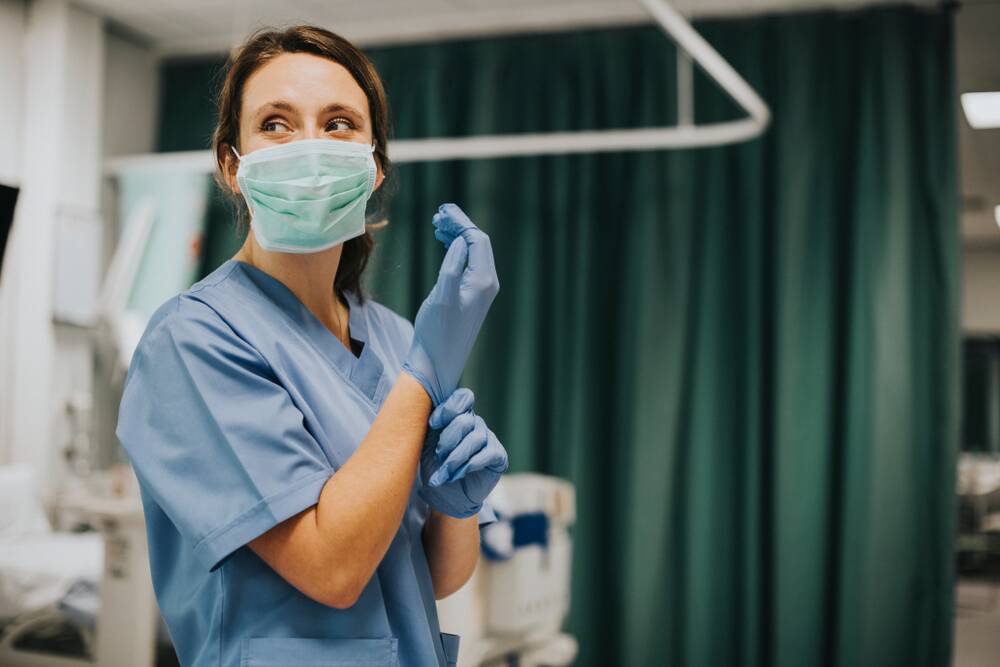The role of nursing in the modern era: How technological advancements have impacted caregiving


With the advancements of modern technology, many sectors of society look unrecognisable from what they once were. Nursing is one such profession that has experienced positive impacts and will continue to do so in the future.
As technology continues to improve, there have been whirlwind changes to traditional processes and practices in nursing. Whether you're a seasoned veteran or fresh out of university and have completed your degree or graduate certificate in nursing, we can all agree that nursing requires continuous learning to stay afloat in the healthcare industry.
In this article, we'll examine the ground-breaking benefits that have accompanied the advancements in technology in the field of modern nursing.
What technological advancements have impacted nursing most?
Modern nursing has changed radically over the years due to advancements in technology. Where nurses once spent hours monitoring vitals or performing invasive procedures, nowadays, it can be done within a matter of minutes, if not seconds. Here are some of the most helpful inventions in nursing.
- Electronic Health Records (EHRs)
- Smart beds
- Portable monitors
- Diagnostic tools
- Treatments
- Communication systems
- Online education
What benefits are the benefits of nursing technology?
While we can definitely see how the tools and techniques have advanced due to technology, here are some ways that nursing has benefitted from these innovations.
1. Improved patient care
Of course, one of the most notable benefits of modern technology in nursing has been the increase in treatment accessibility. Procedures are less invasive, patient monitoring and medicine administration are more efficient, and nurses are alerted to if patients need help with a click of a button. Overall, patients should be experiencing the best healthcare that the world has yet to offer.
2. Reduced human error
To err is human, but when you're a nurse, it's the difference between life and death. Understaffed wards and nurses working long hours are aware of the risk of making mistakes. Thankfully, due to the advancement of technology, routine procedures are generally less time-consuming and are easier to complete.
3. Faster medical breakthroughs
With the help of technology, nurses no longer have to deal with endless reams of paperwork. All patient notes can be jotted down and uploaded to a hospital's server instantaneously. Subsequently, scientists now have faster access to patient data online, which they can use to study trends and make medical breakthroughs.
4. Telehealth reduces the impact of nursing shortages
The hours are long, and the work is demanding - physically, mentally and emotionally. Burnout is one of the biggest contributors to nursing shortages across the globe. Taking time off is necessary to ensure nurses are performing at their best, but this can leave a gap in force.
Thanks to innovative technologies like telehealth, the burden on nurses has been lifted significantly. Fewer nurses are required to provide care to individual patients. This sort of technology also means patients can be seen remotely, and as a result, fewer people will be sent to the ER, which will reduce the load on nurses.
5. Nurses can further their studies online
There is and always has been a huge demand for nurses. With universities allowing students to study online towards a degree in nursing, filling the need for nurses while making studying more accessible to students has become easier than ever.
For the nurses who have made it through the trenches and received their undergraduate degree in nursing. Well done! What's next in your plan? You could go out into the medical world and get to work, or you have the opportunity to build on your knowledge and get a graduate certificate in nursing.
Earning a graduate certificate in nursing allows individuals to develop their skills and knowledge further and aim for a specialty in nursing. Holding a graduate certificate indicates to future employers a scholar's dedication to enhancing their skillset and capability for high-level work.
Could nurses be replaced by technology?
While the advancements we've seen in technology have been impressive and incredibly beneficial in the healthcare industry, it's unlikely that technology could completely replace nurses in the near future.
With the use of new and innovative software, EHRs, apps and AI, it's clear that technology has been beneficial in improving the role of nurses in healthcare when used correctly, but it won't soon be replacing nurses due to significant drawbacks.
Final thoughts
Technology has transformed the roles of many professions over the decades. From smart equipment to patient monitoring and even allowing nurses to be trained online, nursing has become all the more efficient alongside the advancements in technology.


